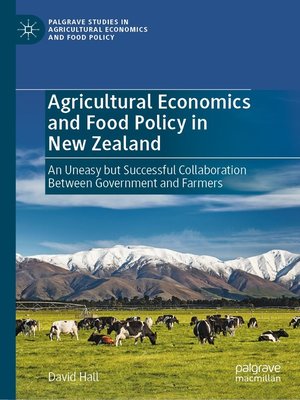Agricultural Economics and Food Policy in New Zealand
ebook ∣ An Uneasy but Successful Collaboration Between Government and Farmers · Palgrave Studies in Agricultural Economics and Food Policy
By David Hall

Sign up to save your library
With an OverDrive account, you can save your favorite libraries for at-a-glance information about availability. Find out more about OverDrive accounts.
Find this title in Libby, the library reading app by OverDrive.



Search for a digital library with this title
Title found at these libraries:
| Library Name | Distance |
|---|---|
| Loading... |
The book analyses agricultural economics and food policy in New Zealand, where farming produce has been by far the main export commodity. Farming exports' importance, together with the need to diversify exports away from a former colonial relationship with the UK, makes liberalising agricultural trade a major concern for New Zealand. Farmers, themselves, have influenced, significantly, policy development and implementation through their organisation, Federated Farmers. After World War II farmers at first encouraged Government financial support for farming and by the 1980s farming was highly subsidised. Farmers recognised in the 1980s that New Zealand's economic problems demanded reduced Government intervention and accepted ending farming subsidies. New Zealand then encouraged, globally, 'farming without subsidies'. New Zealand projected an image of environmental cleanliness and greenness in support of its exporting but into the 21st century wrestled to maintain thatimage because farming impacted on water quality and climate change emissions.







